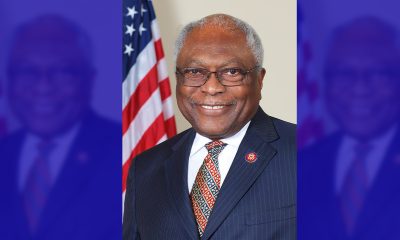National
Trade Schools Have to Find Grads Jobs, or Lose Financial Aid

This July 8, 2014 file photo shows an Everest Institute sign on an office building in Silver Spring, Md. In the two decades since trade schools started popping up on U.S. stock exchanges to maximize profits, allegations of misconduct have been rampant. (AP Photo/Jose Luis Magana, File)
ANNE FLAHERTY, Associated Press
WASHINGTON (AP) — Exotic dancers hired as admissions counselors. Recruiters told to seek out “impatient” individuals who have “few people in their lives who care about them.” Military personnel still recovering from brain damage told to sign on the dotted line.
In the two decades since trade schools started popping up on U.S. stock exchanges to maximize profits, allegations of misconduct have been rampant. On Wednesday, new rules go into effect for any school with a career-training program. Graduates have to be able to earn enough money to repay their student loans, or a school risks losing access to financial aid. In general, annual loan payments shouldn’t exceed 20 percent of a graduate’s discretionary income or 8 percent of total earnings.
It’s a modest step, consumer advocates say, that will probably succeed in shutting down the most obviously fraudulent programs, often criminal justice and medical training programs that can cost as much as $75,000 but aren’t sought after by employers. Still, the government’s new definition for “gainful employment” is unlikely to change what’s become a complicated, enduring problem in the U.S.
Too many poor kids, mostly minorities, are reaching adulthood with little education, no prospect of attending a four-year traditional college and not enough time, money or knowhow to figure out an alternative path through a local community college. What these students do have is eligibility for government-backed student loans and grants, making them targets for predatory lending schemes that look much like tactics used by subprime lenders during the housing crisis.
Meanwhile, there remains little appetite in Congress and the White House to wade into the business of deciding which diplomas and schools are worthwhile. House and Senate Republicans have proposed blocking enforcement of the regulations, while the White House said it’s backing off from the idea of developing its own college ratings plan.
“This is a civil rights issue, plain and simple,” said Maura Dundon, senior policy council at the Center for Responsible Lending, which estimates that 28 percent of black students studying for a four-year degree are enrolled at a for-profit college compared to only 10 percent of white students.
For-profit schools say they are meeting a need of students looking for job training.
“Who else in higher education is educating these students? I have yet to get a cogent answer to this,” said Noah Black, a spokesman for the Association of Private Sector Colleges and Universities, or APSCU, a group that represents the $30 billion-a-year industry and sued unsuccessfully to block the regulations.
Republicans in Congress have swung behind the industry, saying the Education Department’s debt-to-earnings ratio doesn’t make sense.
“If every graduate in the University of Tennessee’s political science program were to come work on Capitol Hill, then that program would be shut down,” said Sen. Lamar Alexander, who chairs the committee that oversees education and labor issues.
Well intentioned or not, the unfettered rise of for-profit colleges since the 1990s is costing taxpayers. For-profit schools consistently take in more federal loan money than nonprofit schools, despite enrolling a smaller number of students. Yet, for-profit students also account for 47 percent of all federal student loan defaults, according to a 2012 Senate investigation.
In addition to loan defaults, state and federal investigations have turned up widespread allegations of fraud and deceptive business practices, particularly in the case of the now-defunct for-profit chain Corinthian Colleges. The findings have been so startling that last month the Education Department launched a major consumer bailout program and appointed a “special master” to oversee debt relief for students.
Certain Corinthian-related programs, including those at Heald College, were deemed so unfair and predatory that the Education Department set up a website to make the process of debt relief easier for those students. Officials estimate bad debt resulting from Heald College at about $542 million.
The total could climb. The Education Department estimates it loaned some $3.6 billion in the past five years to Corinthian students before the government forced it to sell or close its campuses.
Other for-profits too are showing signs of trouble: ITT Educational Services, Education Management Corp., University of Phoenix, Career Education Corp., Kaplan and DeVry University are among those that have disclosed to shareholders that they are or have been subjects of investigations by state or federal authorities.
“These are our taxpayer dollars that form federal student loans, that are used to educate people and supposedly place them in jobs. When did that cease to be a public trust?” said Jack Conway, the state attorney general in Kentucky and the leader of a working group of 37 states investigating for-profit schools.
The latest regulations have so far survived two challenges in court, but include what reform advocates say is still a big loophole: The regulations only consider graduates of a program and whether they can find employment. The rules don’t consider how many students attend a school and drop out, either because they were never qualified in the first place or because they realized the program wasn’t going to get them a job.
White House officials said the rules are the toughest viable legal option at a time when many lawmakers are defending the industry. They estimate the regulation will affect some 841,000 students enrolled in training programs that won’t result in employment.
“This industry is well-funded, has powerful backers in Congress and has worked relentlessly to avoid even the most commonsense measures,” Education Secretary Arne Duncan said. “But today, despite their efforts, new safeguards for students become a reality.”
APSCU’s Black said the administration’s focus on employment makes the regulations unfair. Nonprofit public and private colleges churn out numerous degrees that don’t immediately translate into jobs, he said.
“By whose metric are these worthless degrees?” he asked.
___
Follow Anne Flaherty on Twitter at https://twitter.com/annekflaherty.
Copyright 2015 The Associated Press. All rights reserved. This material may not be published, broadcast, rewritten or redistributed.
Activism
Oakland Post: Week of April 17 – 23, 2024
The printed Weekly Edition of the Oakland Post: Week of April 17 – 23, 2024

To enlarge your view of this issue, use the slider, magnifying glass icon or full page icon in the lower right corner of the browser window. ![]()
Barbara Lee
Congresswoman Barbara Lee Issues Statement on Deaths of Humanitarian Aid Volunteers in Gaza
On April 2, a day after an Israeli airstrike erroneously killed seven employees of World Central Kitchen (WCK), a humanitarian organization delivering aid in the Gaza Strip, a statement was release by Rep. Barbara Lee (D-CA-12). “This is a devastating and avoidable tragedy. My prayers go to the families and loved ones of the selfless members of the World Central Kitchen team whose lives were lost,” said Lee.

By California Black Media
On April 2, a day after an Israeli airstrike erroneously killed seven employees of World Central Kitchen (WCK), a humanitarian organization delivering aid in the Gaza Strip, a statement was release by Rep. Barbara Lee (D-CA-12).
“This is a devastating and avoidable tragedy. My prayers go to the families and loved ones of the selfless members of the World Central Kitchen team whose lives were lost,” said Lee.
The same day, it was confirmed by the organization that the humanitarian aid volunteers were killed in a strike carried out by Israel Defense Forces (IDF). Prior to the incident, members of the team had been travelling in two armored vehicles marked with the WCF logo and they had been coordinating their movements with the IDF. The group had successfully delivered 10 tons of humanitarian food in a deconflicted zone when its convoy was struck.
“This is not only an attack against WCK. This is an attack on humanitarian organizations showing up in the direst situations where food is being used as a weapon of war. This is unforgivable,” said Erin Gore, chief executive officer of World Central Kitchen.
The seven victims included a U.S. citizen as well as others from Australia, Poland, the United Kingdom, Canada, and Palestine.
Lee has been a vocal advocate for a ceasefire in Gaza and has supported actions by President Joe Biden to airdrop humanitarian aid in the area.
“Far too many civilians have lost their lives as a result of Benjamin Netanyahu’s reprehensible military offensive. The U.S. must join with our allies and demand an immediate, permanent ceasefire – it’s long overdue,” Lee said.
Commentary
Commentary: Republican Votes Are Threatening American Democracy
In many ways, it was great that the Iowa Caucuses were on the same day as Martin Luther King Jr. Day. We needed to know the blunt truth. The takeaway message after the Iowa Caucuses where Donald Trump finished more than 30 points in front of Florida Gov. De Santis and former South Carolina Governor Nikki Haley boils down to this: Our democracy is threatened, for real.

By Emil Guillermo
In many ways, it was great that the Iowa Caucuses were on the same day as Martin Luther King Jr. Day.
We needed to know the blunt truth.
The takeaway message after the Iowa Caucuses where Donald Trump finished more than 30 points in front of Florida Gov. De Santis and former South Carolina Governor Nikki Haley boils down to this: Our democracy is threatened, for real.
And to save it will require all hands on deck.
It was strange for Iowans to caucus on MLK day. It had a self-cancelling effect. The day that honored America’s civil rights and anti-discrimination hero was negated by evening.
That’s when one of the least diverse states in the nation let the world know that white Americans absolutely love Donald Trump. No ifs, ands or buts.
No man is above the law? To the majority of his supporters, it seems Trump is.
It’s an anti-democracy loyalty that has spread like a political virus.
No matter what he does, Trump’s their guy. Trump received 51% of caucus-goers votes to beat Florida Gov. Ron DeSantis, who garnered 21.2%, and former South Carolina Gov. Nikki Haley, who got 19.1%.
The Asian flash in the pan Vivek Ramaswamy finished way behind and dropped out. Perhaps to get in the VP line. Don’t count on it.
According to CNN’s entrance polls, when caucus-goers were asked if they were a part of the “MAGA movement,” nearly half — 46% — said yes. More revealing: “Do you think Biden legitimately won in 2020?”
Only 29% said “yes.”
That means an overwhelming 66% said “no,” thus showing the deep roots in Iowa of the “Big Lie,” the belief in a falsehood that Trump was a victim of election theft.
Even more revealing and posing a direct threat to our democracy was the question of whether Trump was fit for the presidency, even if convicted of a crime.
Sixty-five percent said “yes.”
Who says that about anyone of color indicted on 91 criminal felony counts?
Would a BIPOC executive found liable for business fraud in civil court be given a pass?
How about a BIPOC person found liable for sexual assault?
Iowans have debased the phrase, “no man is above the law.” It’s a mindset that would vote in an American dictatorship.
Compare Iowa with voters in Asia last weekend. Taiwan rejected threats from authoritarian Beijing and elected pro-democracy Taiwanese vice president Lai Ching-te as its new president.
Meanwhile, in our country, which supposedly knows a thing or two about democracy, the Iowa caucuses show how Americans feel about authoritarianism.
Some Americans actually like it even more than the Constitution allows.
About the Author
Emil Guillermo is a journalist and commentator. He does a mini-talk show on YouTube.com/@emilamok1.
-

 Activism4 weeks ago
Activism4 weeks agoOakland Post: Week of March 27 – April 2, 2024
-

 #NNPA BlackPress4 weeks ago
#NNPA BlackPress4 weeks agoCOMMENTARY: D.C. Crime Bill Fails to Address Root Causes of Violence and Incarceration
-

 #NNPA BlackPress4 weeks ago
#NNPA BlackPress4 weeks agoMayor, City Council President React to May 31 Closing of Birmingham-Southern College
-

 #NNPA BlackPress4 weeks ago
#NNPA BlackPress4 weeks agoBeloved Actor and Activist Louis Cameron Gossett Jr. Dies at 87
-

 Community1 week ago
Community1 week agoFinancial Assistance Bill for Descendants of Enslaved Persons to Help Them Purchase, Own, or Maintain a Home
-

 Activism3 weeks ago
Activism3 weeks agoOakland Post: Week of April 3 – 6, 2024
-

 Business1 week ago
Business1 week agoV.P. Kamala Harris: Americans With Criminal Records Will Soon Be Eligible for SBA Loans
-

 Activism2 weeks ago
Activism2 weeks agoOakland Post: Week of April 10 – 16, 2024






















































